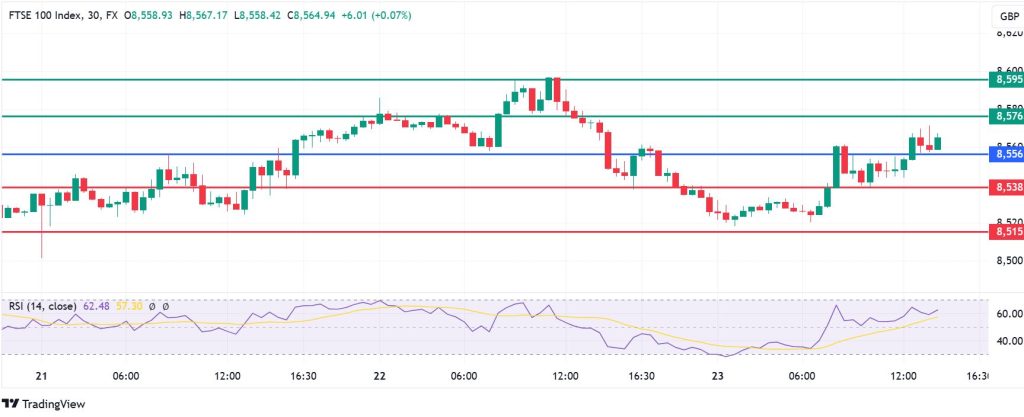The FTSE 100 rises again as tariff concerns ease
- summary:
- US President Donald Trump is taking his time before announcing tariffs, creating favorable conditions for the FTSE 100 to boom.
The FTSE 100 index returned to the upside on Thursday, extending its record to six wins in the last seven trading sessions. UK markets were in turmoil on Wednesday following news of upcoming trade tariffs imposed by US President Donald Trump. Trump is scheduled to speak on Thursday, and traders will be keen to pick cues from his speech. The main area of interest is likely to be the tariff front, which has already attracted China, the European Union, Mexico and Canada.
BAT (+1.15%), AstraZeneca (+0.91%) and NatWest (+1.10%) were among the notable gainers in the FTSE 100 at the time of writing. Anglo American (-1.43%), Glencore (-1.3%) and Tesco (-1.27%) were the notable losers at press time.
Meanwhile, the latest data shows that the UK unemployment rate rose to 4.4% in December, beating the expected figure of 4.3%, which was the same as November’s reading. This could increase concerns about slowing economic growth in the country and add downward pressure on the FTSE 100.
The medium-term focus is on the Bank of England which is expected to make its first interest rate cut in February. UK inflation fell from 2.6% in November to 2.5% in December, raising the odds of an interest rate cut in the first quarter of the year to support the economy.
FTSE 100 forecast
Momentum in the FTSE 100 calls for further gains above the pivotal mark of 8,576 points. With buyers in control, immediate resistance is likely to be at 8,580 points. However, the stronger bullish momentum will break above this level and could test 8,595 points.
Alternatively, a move below 8,556 points would indicate a shift in momentum to the downside. In this case, the index is likely to move to the first support level at the 8,538-point mark. A break below this level will invalidate the bullish narrative. Additionally, momentum may lead to a lower move to test 8,515 points.






